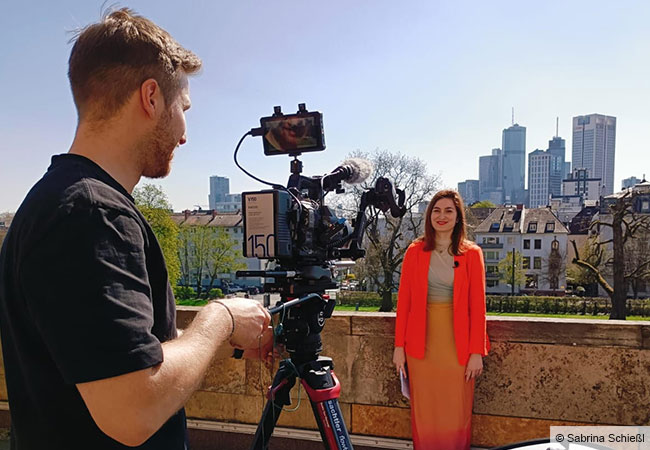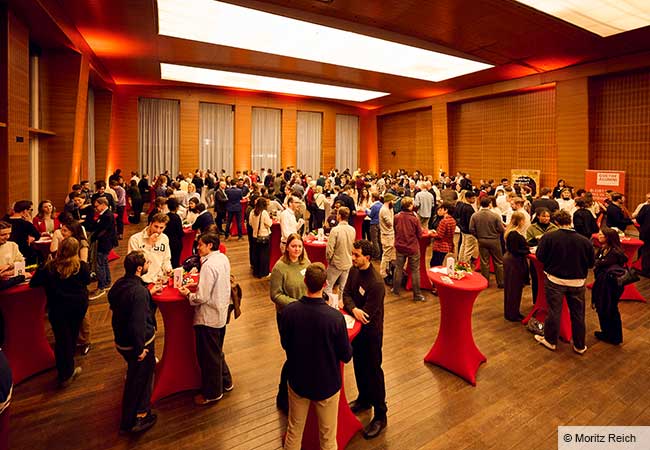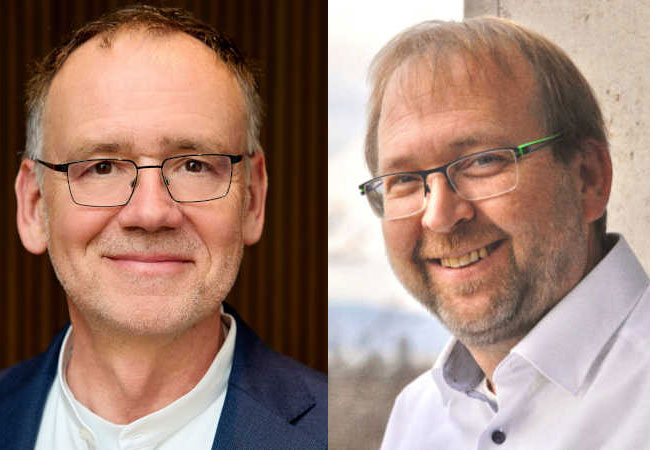Students at universities in Germany have a consistently positive attitude towards the UN’s 17 Sustainable Development Goals, but, depending on their subject of study, they rank the individual goals’ importance differently. This is the result of a new country-wide online survey conducted by Goethe University Frankfurt. The poll also took into account students’ personal connection to nature. The resulting study offers initial indications of how universities could better integrate the topic of sustainability into their courses in the future – including in the form of an interdisciplinary exchange.

Many of today’s students will become tomorrow’s decision-makers, taking on important roles in politics, business and society. As a result, they will also have a major influence on how sustainably society will act in the future, whether climate change will be consistently combated or nature adequately protected. But what attitudes do these future decision-makers have towards sustainability? Does it play a central role in their considerations or not? A Germany-wide study conducted by Goethe University Frankfurt provides new insights into these questions and more. The poll asked students from 18 different subjects about their connection to nature and how important they consider the 17 individual UN Sustainable Development Goals (SDGs) to be. The SDGs include clean water, no poverty, zero hunger, social justice and economic growth.
“We asked ourselves three research questions,” says first author Viktoria Feucht from the Department of Didactics at Goethe University’s Faculty of Biological Sciences: “Do students from different study programs diverge in their connection to nature? Do students on separate programs rate the individual sustainability goals differently? Is there a correlation between one’s connection to nature and the assessment of the individual goals’ importance?”
Responses to the first question on “connection to nature” revealed that study programs that are thematically linked to nature – including geosciences and geo-ecology, but also architecture – had the highest values, while subjects such as business studies, chemistry and computer science had the lowest. The midfield included, among others, more human-oriented programs, including sociology and theology. “One interesting question to explore would be what causes these different levels of connection to nature,” says Feucht, adding that “it could be the influence of the study program itself. Or it could be that the students were already influenced in one direction or another before starting their studies, by childhood experiences, for example.”
The second question consisted of an evaluation of the UN sustainability goals, asking respondents to provide a ranking of 1 to 5 – i.e. unimportant to important. The responses show that the SDGs’ individual ideas were rated as important – often even very important – across all subjects. The lowest subject-specific mean value stood at 3.5, the highest at 4.9, with at times significant differences according to the subject. As such, students of business studies ranked the economic SDG 9 (Industry, Innovation and Infrastructure) much higher than students of geo-ecology. The latter and biology, on the other hand, assigned much greater importance to SDG 14 (Life Below Water) than the subjects of physics and computer science. An overarching trend was discernible for SDG 2 (Zero Hunger) and SDG 6 (Clean Water and Sanitation), both of which consistently received very high scores of 4.7 and above. Feucht interprets this as follows: “Food and drinking water are among the most basic human needs, and necessary for survival – something all respondents, regardless of their subject, consider to be very important.”
As part of the third research question, the study’s authors linked the mean values of respondents’ connection to nature with their SDG ratings. “Since the UN goals also have the ecological dimension, we wanted to see whether personal connection to nature is reflected in some of the SDGs.” This, however, was only the case for SDG 15 (Life on Land). The consistency of the values derived here shows that the more important a study program considers SDG 15 to be, the more connected to nature it is – and vice versa. “Of course, this does not prove causality, but it does show a correlation.”
What conclusions can be drawn from the survey’s results? “We have shown that students in Germany assign a high to very high level of importance to all 17 SDGs, regardless of their subject. The general attitude towards the SDGs is positive – a finding universities should use to train students from all subject areas more strongly in sustainability.” One approach could be an analysis of the match between connection to nature and SDG 15. Study author Dr. Matthias Kleespies says: “Based on our results, we recommend a reflective and nature-oriented educational approach, as other studies have shown that such measures can improve the connection to nature.”
It would also make sense to increasingly link subject-specific topics with sustainability aspects in lectures. “The UN goals are universal, which means many points of contact exist,” says Feucht. That includes subjects in which sustainability aspects have not previously been a priority. One example Feucht points to is chemistry, which, like other subjects, holds great potential to initiate change. Topics like waste recycling and production processes, for instance, could be easily combined with sustainability issues. “We shouldn’t categorically exclude any subject. Sustainability concerns all of us, which is why all study programs should address the topic in depth.”
Inter- and transdisciplinarity is another promising approach. “Since every subject has its own inherent logic, an exchange between students from different subjects can help broaden the understanding of sustainability on both sides.” Such an exchange would involve both common denominators as well as opposing attitudes, which could be a good thing, Feucht says: Once today’s students become influential players in politics or business, they must also be able to reach common decisions – even if they may have contrary opinions on certain sustainability aspects.
Publication: Viktoria Feucht, Paul Wilhelm Dierkes, Matthias Winfried Kleespies: Ranking our future: University students‘ prioritization of Sustainable Development Goals and their connection to nature. Sustainable Development (2024) https://doi.org/10.1002/sd.3278







